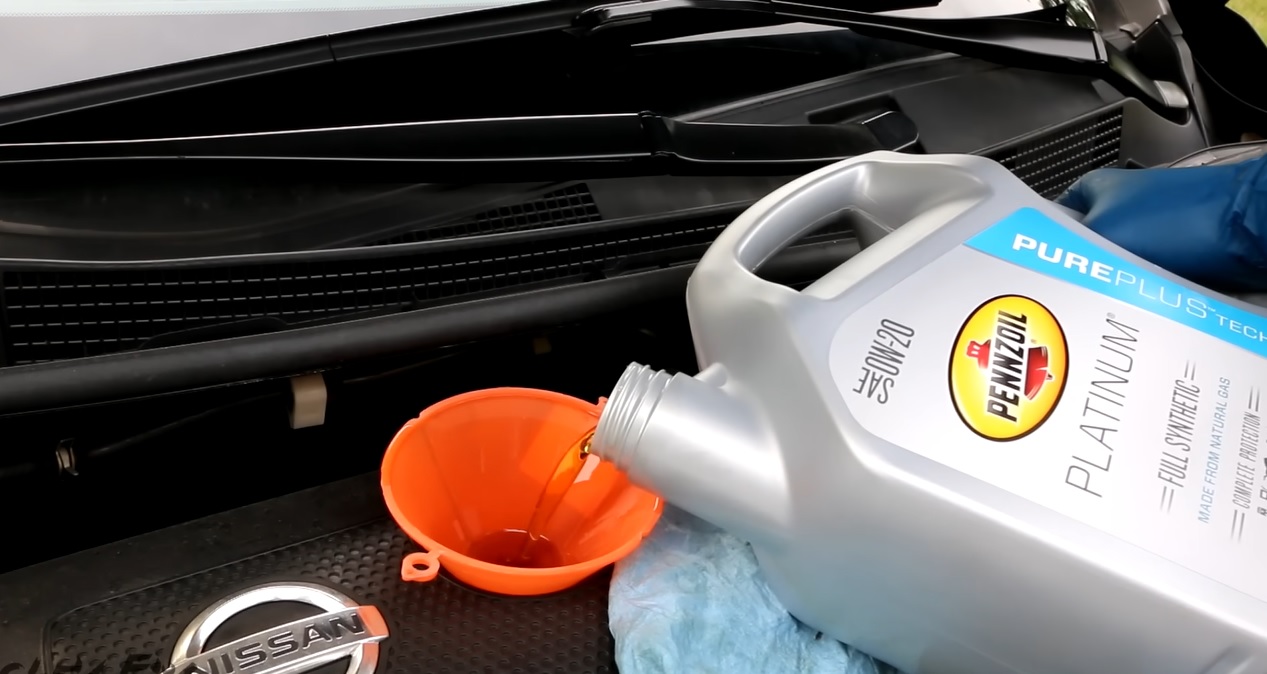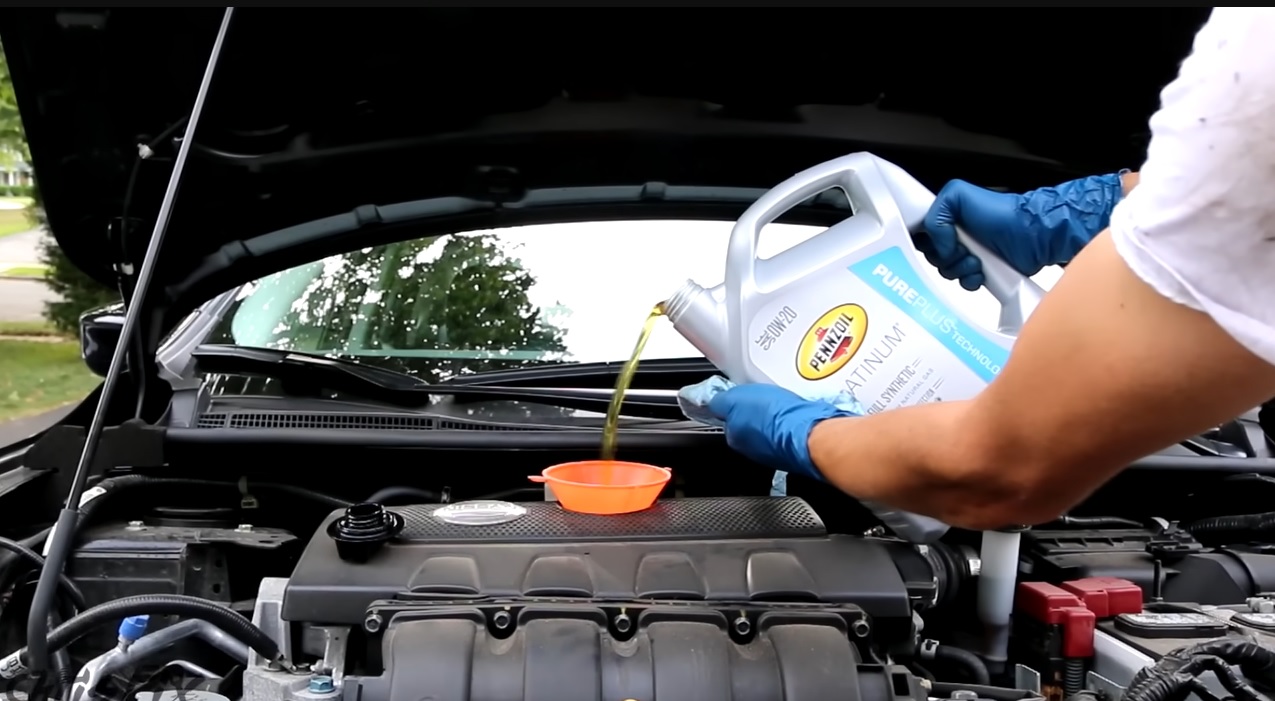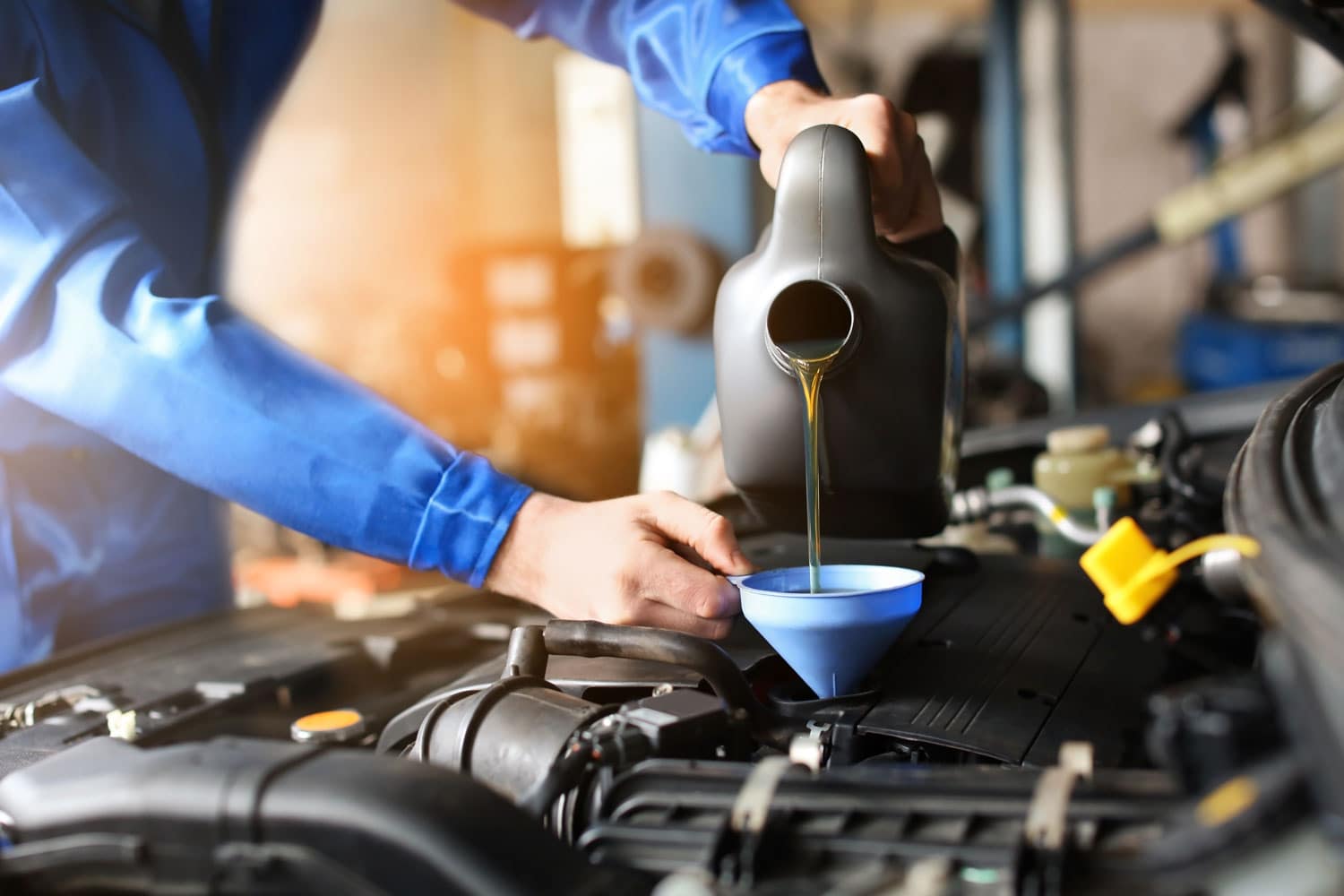
Vehicle maintenance means a healthy amount of expense. It requires a regular oil change, battery maintenance, air filter replacement, brake service, and so on. So many owners always try to cut some expenses.
To expand the life of the last oil change, many car owners simply add oil that is called top-off. But is it okay for your vehicle? How long you can stretch by adding oil?
Adding oil is a quick solution rather than an oil change. However, it is not an ideal substitute solution for an oil change. Top-off is a one-way solution when the oil level is critically low and you need to push to go to the auto shop right away. You have to perform regular oil changes every twelve months or 5000 miles.
In this article, I will answer your most relevant questions and make a debate between adding oil vs changing oil. So let’s jump on it.
Adding Oil VS. Changing Oil
Adding oil may cost you less but you will suffer in the long run. It causes some serious issues with the engine. Adding oil never replaces the regular oil-changing process. Let’s have a comparison view:
|
|
Adding oil |
Changing oil |
|
Purpose |
Top off the oil level if it’s low |
Completely replace old oil with new oil |
|
Frequency |
As needed when the oil level is low |
Typically every 3,000 to 5,000 miles |
|
Time Taken |
Only a few minutes |
Can take 30 minutes to an hour or more |
|
Cost |
Relatively Cheap |
Can be expensive depending on the type of oil used and the mechanic’s labor fees |
|
Effectiveness |
Helps maintain a proper oil level |
Improves engine performance, prolongs engine life, and removes harmful contaminants |
|
Maintenance |
It is not a substitute for regular oil changes |
An essential part of routine maintenance to keep the engine running smoothly |
|
Risks |
If overfilled, can cause engine damage |
Old oil left in the engine can cause buildup and potentially damage engine components |
Is adding engine oil the same as getting your oil changed?
Many think adding oil is the same as an oil change. But it is a misconception. When you add oil to the engine, the existing oil doesn’t properly mix up with new oil. Also, old oil contains contamination that reduces the quality of the new oil and causes damage and clogging in the combustion chamber.
Coming to the oil filter, you don’t clean or change it while adding oil and it is harmful to the engine. Due to long usage oil filter is also clogged with dirt and impurities. The impurities will remain to enter with the engine oil which can result in sludge. Thus, it can block several components of the engine.
Changing oil means draining all the oil from the engine and pouring brand-new and clean engine oil which is the most obvious practice for car owners. Naturally, oil gets dirty or levels down over time. So it is essential to change the oil after a limited period.
Typically, the oil filter is also get replaced or cleaned while changing the oil. That means, there is no unnecessary engine wear or impurities. Changing oil better protects the engine ensures perfect lubrication of the components and works well together.
Can I just add oil instead of changing it?

Add or top-up oil can’t replace the oil changing service of your car. Top-up oil is not always recommended. You can add oil only if your car’s oil level is critically low and you need to go to the servicing center. Most time, an engine oil leak causes a decrease in the oil level and you need to top up before the actual time of the oil change.
There is a few benefits of top-up. For example, it prevents engine damage due to low oil. Running the engine with low oil causes excessive friction, wear, and tear that lead to a costly repair. So if you add oil, it will maintain proper lubrication in its moving parts and reduce friction heat. The engine runs efficiently and it improves the fuel economy in your vehicle.
At the same time, you can’t continue it instead of changing the oil. Because used oil gradually decreases lubricant properties and sludge that barriers the flow of engine oil. It can cause clogging, damage the engine, and finally costly repair.
So you can’t just add oil instead of changing it.
Read More: Pennzoil VS Valvoline: Which One Is Better?
Consider a few things before adding oil:
- Check the oil level: Before adding oil, check the oil level using the dipstick. The dipstick is usually located near the engine and has a yellow handle. Remove the dipstick, wipe it with a clean cloth, re-insert it, and then remove it again to see where the oil level is. If the oil level is already at or above the full mark, you don’t need to add any more oil.
- Check the oil color: The color of the oil on the dipstick can tell you a lot about its condition. If the color is yellow or the same as the new oil’s color, you can add oil. If the oil is dark and dirty, it’s time for an oil change. If the oil is milky or foamy, it could indicate a serious problem with the engine, and you should have it checked by a mechanic.
- If the oil dipstick is low: If the oil dipstick is lower, then you need to add the oil. Well, it is acceptable for a specific type of car model, engine, and wear and tear. Moreover, if there is any leakage, it will drain the engine oil faster and you need to solve it quickly.
What happens if you go too long without an oil change?
If you don’t change the engine oil for too long, it can lead to significant damage and expensive repairs. Oil lubricates every moving part of the engine and prevents overheating. If you drag your engine too excessively without an oil change, it can be worse.
It can lead to engine damage, reduce fuel efficiency, overheating, oil sludge, and overall decrease engine lifespan.
Benefits Of Changing Oil?

Changing the engine oil periodically is a significant part of car maintenance. If there is a perfect flow of oil, the engine will be adequately lubricated.
Your car’s performance determines its level of lubrication. When all the moving parts of the car engine operate smoothly without any friction or heat, you will enjoy superior performance.
Fresh oil better protects the engine from contaminants like dirt, dust, and debris that accumulate over time. So there will be no sludge, and clogging between the engine components.
Every engine comes with a limited lifespan. But if you maintain the engine properly, you can prolong its life. Engine oil is the blood and ensures the vehicle stays in working order. It decreases wear, tear, and external damage to the engine. Thus, changing the oil prolongs the engine’s life.
Overall, changing oil regularly prevents expensive repair and maintenance costs related to engine damage or failure.
When do I Need to go for an Oil change?
Frequently Asked Questions (FAQs)
How Often Should I Add Oil To My Car?
It is not recommended to add oil to your car regularly. However, you should regularly check your car’s oil level using the dipstick and add oil only when the level is low.
As a general rule of thumb, you should check your car’s oil level at least once a month and before any long trips. If you notice that the oil level is low, you should add enough oil to bring it to the recommended level. The recommended oil level can usually be found in your car’s owner’s manual or on the dipstick itself.
Is it okay to add new oil to the old oil?
No, it is not preferable to add new oil to the old oil. It can impact negatively your vehicle. The frequency of adding oil to the old oil will depend on several factors, including the age and condition of your car, the type of oil you use, and how often you drive.
Can I top off the oil in a hot engine?
It is not recommended to top off oil in a hot engine. When the engine is hot, the oil is also hot and under pressure. Adding oil to a hot engine can cause the oil to splash or spill out of the filler hole, potentially causing burns or other injuries.
It is best to wait until the engine cools down before adding oil. This will allow the oil to settle and give a more accurate reading on the dipstick.
Final Thoughts
After reading this comparison article on adding oil vs changing oil, you already understand adding oil is more than necessary not a part of regular maintenance. You can not continue adding oil without changing it. For a healthy condition of your car, you always need to change oil regularly.
Leave a Reply